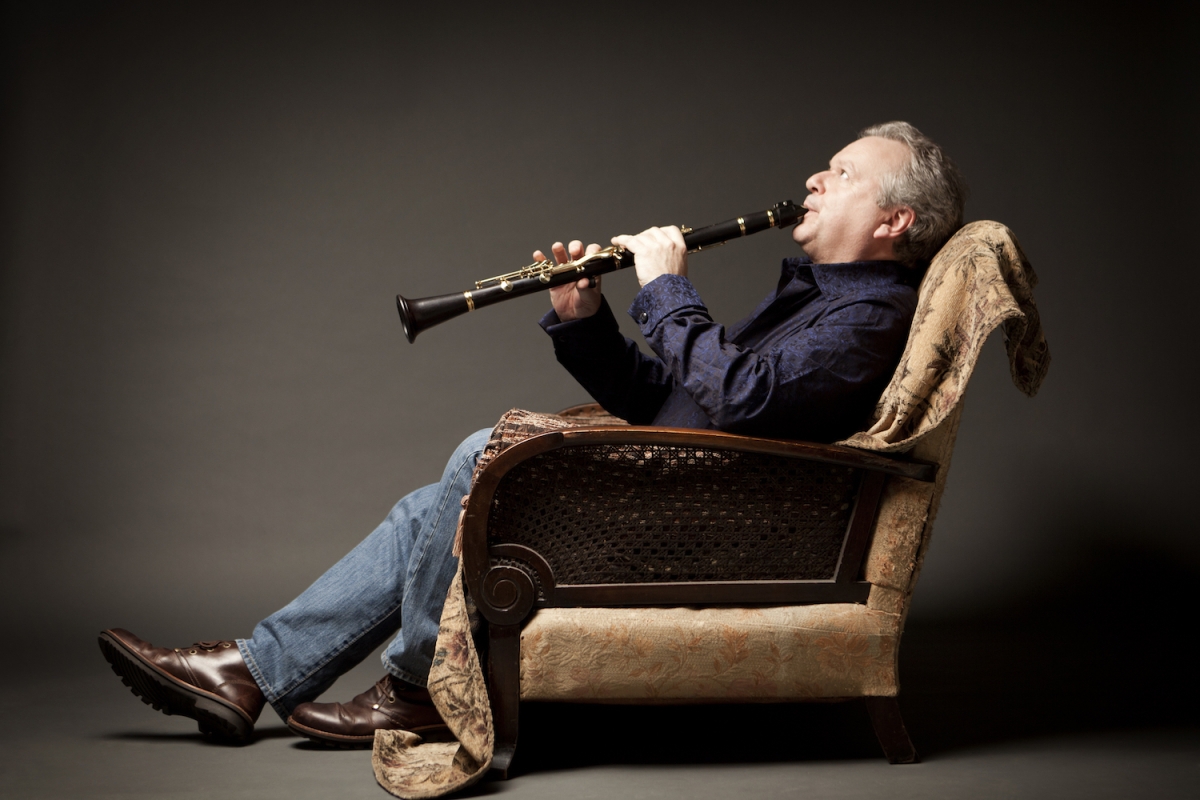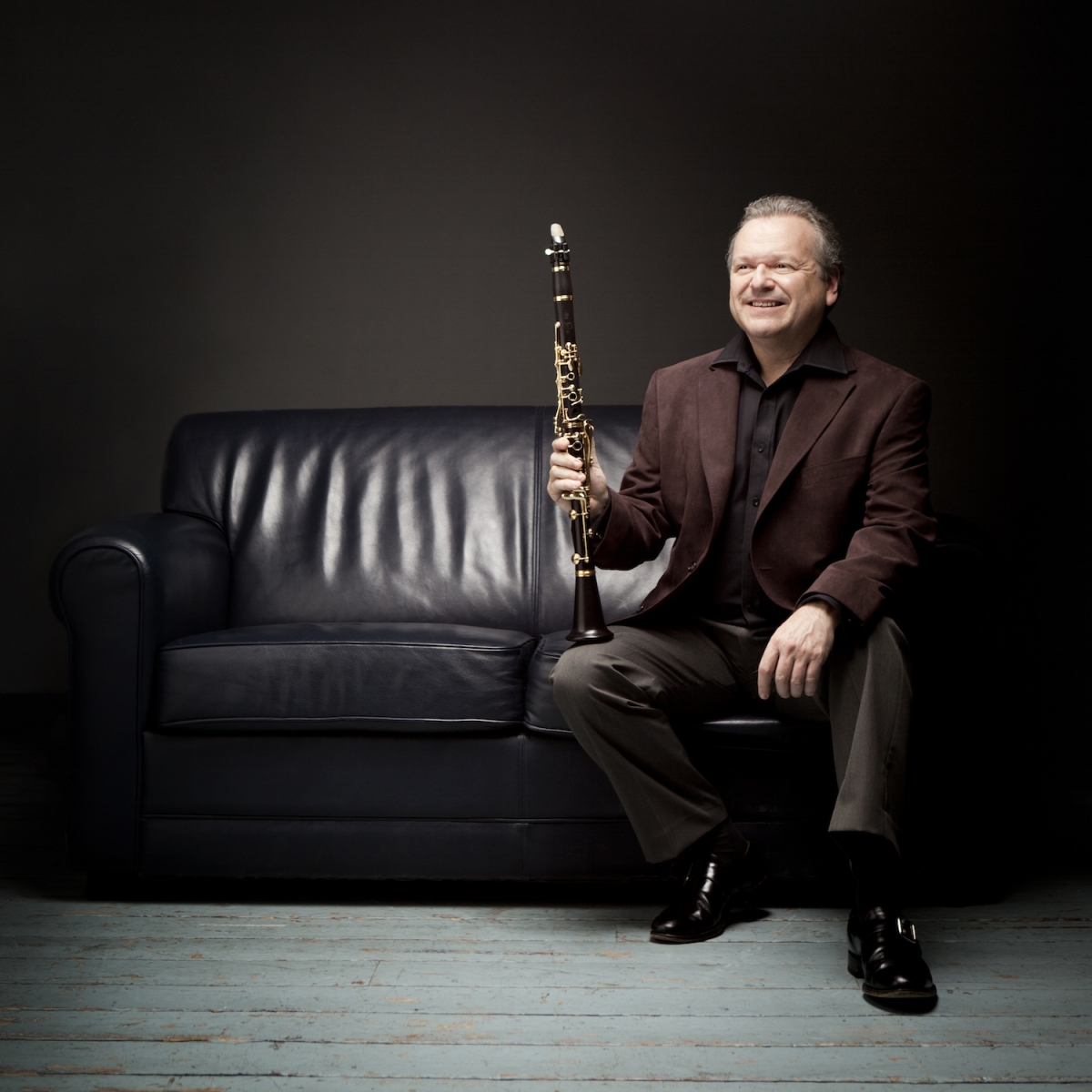Few works in the classical canon are as beloved as Mozart’s Clarinet Concerto in A Major. Mozart wrote what was to be his final completed work – he was working on it within weeks of his death in 1791 – and it remains one of his most popular pieces.
The Clarinet Concerto was voted number one in ABC Classic’s very first Classic 100 in 2001, beating out Vaughan Williams’ The Lark Ascending and Beethoven’s Ninth and Fifth Symphonies, while the beautiful Adagio second movement came first in 2006’s Classic 100 Mozart (the first and third movements came in at 11 and 17 respectively).
 Michael Collins. Photo © Ben Ealovega
Michael Collins. Photo © Ben Ealovega
Its popularity still undiminished, English clarinettist and conductor Michael Collins performs the work (as soloist and director) with the Melbourne Symphony Orchestra in April, on a program alongside a brand new Clarinet Concerto by Paul Dean (with the composer as soloist and Collins conducting) and Beethoven’s Seventh Symphony.
So what makes the Clarinet Concerto so magical? “I think there are several reasons why people adore this work,” Collins tells Limelight. “Its accessible beauty as a piece of music, and the clarinet, which is so close to the human voice, are a couple of things – but also that the second movement was used for the [1985 film] Out of Africa theme music, which has made the Concerto very popular.”
“In my opinion this is the most advanced and longest of [Mozart’s] Concertos, certainly compared to other wind instruments,” he says. “Mozart’s obvious love for the clarinet is evident from the really long phrases which simply pour out from Mozart’s hand.”
As a clarinet player, Collins has lived with the piece his whole career, recording it in 2000 with the Russian National Orchestra and Mikhail Pletnev on Deutsche Grammophon, and more recently in 2013 on basset clarinet with the Swedish Chamber Orchestra on Chandos (on a disc alongside Elena Kats-Chernin’s Ornamental Air).
“It has been a wonderful journey over the last 40 years of playing this work,” he says. “I have grown with it, but each time I play the Concerto I seem to find something new to say about it which keeps things very fresh and exciting.”
That’s not to say Collins can rest easy. “One of the main challenges playing this piece is to try and get each player on the same page stylistically,” he says. “We could spend literally hours sorting out every last detail in refining the phrasing and, length of bows, musical sentences etc. For me this is the main challenge.”
 Michael Collins. Photo © Ben Ealovega
Michael Collins. Photo © Ben Ealovega
Mozart wrote the Concerto for Anton Stadler (for whom he also wrote his Clarinet Quintet) and the newly invented basset clarinet, which had a range that extends below that of modern clarinets, throwing up challenges for players using modern instruments. “I think if one is going to play on a regular modern A clarinet instead of a basset then we should keep in mind the voicing,” Collins explains. “And try wherever possible to put certain passages which are written in the basset register down one octave to get as close as we can to the original.”
While Collins opens MSO’s concert with the Mozart, wearing the hat of both conductor and soloist isn’t always easy. “One of the biggest challenges is swapping from conducting to playing,” he says. “In a concert situation we don’t have much time to warm up the clarinet and play a few scales to ‘get the instrument going’ so to speak, so it is a little tense for the first few bars of the Concerto when I am wondering if all the notes will speak the way I want them to speak and in tune.”
As for whether he prefers baton or the instrument, Collins can’t choose one over the other. “Both are wonderful,” he says. “Playing is very satisfying. Being able to recreate the music through one’s fingers is a wonderful thing, but conducting is also satisfying, especially when we are all of one mind and the music really begins to happen. This is a very powerful moment.”
Collins will swap the soloist’s spotlight for the podium in the second work on the program, the world premiere of fellow clarinettist and MSO Composer in Residence Paul Dean’s new Clarinet Concerto. But this won’t be the first time Collins has conducted another clarinettist. “I love it very much,” he says. “I feel I can be at one with them and breath with them and almost anticipate the thoughts of the soloist so I am one step ahead – so for me it is an advantage.”
Collins has premiered many new works for clarinet himself, including John Adams’ Gnarly Buttons and Elena Kats-Chernin’s Ornamental Air (which Collins performed with the MSO in 2017). “I have always considered it very important as a soloist to enlarge the repertoire for the clarinet,” he says.
While there are a number of works for clarinet from the Classical period, the Romantic composers were less interested. “For some reason the big romantic composers didn’t write concertos for the clarinet, although we are extremely lucky to have wonderful works by Brahms,” Collins says. “Then we move into the 20th century where the repertoire is incredibly rich.”
“So to enlarge this repertoire now by asking major composers to write for the clarinet is thrilling,” he says. “And hopefully in many years to come these works written today will be classics further down the line.”
Michael Collins performs Mozart’s Clarinet Concerto with the Melbourne Symphony Orchestra at Melbourne Recital Centre on April 4 and at Robert Blackwood Hall, Monash, on April 5











Comments
Log in to join the conversation.